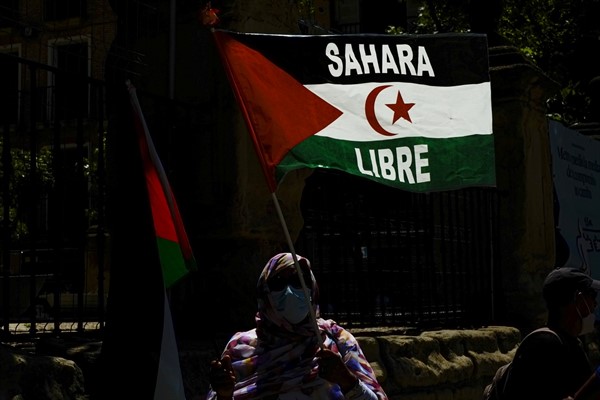Although gas deliveries have so far been unaffected, the suspension of the treaty affects most of Algeria’s trade with Spain and could also affect travel between the two countries. The Algerian political establishment seems to support the decision, despite its potential costs. These could rise steeply if the European Union determines that the move violates the Partnership Agreement governing trade between Algeria and the entire bloc. By risking such an important relationship, Algeria is signaling the extent to which it has run out of options to counter Morocco on the Western Sahara issue. Since the height of the Western Sahara conflict in the 1970s and 1980s, Algeria has supported the Polisario, in part because its revolutionary ideology and experience was consistent with that of Algiers. But the group has also helped contain Morocco by keeping it embroiled in regional conflict. Algeria’s position has its historical roots in the Sand War in 1963, when Rabat, driven by the narrative of a “greater Morocco,” invaded Algeria less than a year after its hard-won independence from France. Though it lasted less than five months, the Sand War would help shape Algerian military and foreign policy doctrine, while presaging decades of hostility, mistrust and tensions with Morocco that engulfed the entire neighborhood and shaped the lives of millions. Algeria’s support for the Polisario would become the basis of Morocco’s own narrative of grievance toward the Algerian military and civilian establishment. From Morocco’s perspective, Algeria’s support is the only thing keeping the Polisario alive as a representative of the Saharawi people and a party to the conflict. From Algeria’s standpoint, however, Morocco is still an opportunist neighbor with expansionist ambitions that represents a constant threat to its national security. And seen through this prism, the extent to which Morocco’s recent bilateral ties with Israel have progressed is alarming, particularly the prospect of increased cooperation on military and cyber security issues, potentially including arms sales. Morocco is also alleged to have launched several drone attacks on Polisario targets, one of which has caused Algerian deaths. Prior to that, Morocco was allegedly involved in a spying scandal targeting Algerian and European leaders facilitated by the Israeli firm NSO’s Pegasus spyware. All of this, coupled with the Moroccan establishment’s tendency to deploy a transactional foreign policy, plays into Algerian fears. In short, geopolitically, the scales are shifting to Morocco’s advantage. While the Trump administration’s recognition of Morocco’s territorial claims over Western Sahara—in return for Morocco signing onto the Abraham Accords, the administration’s crowning Middle East achievement—did not resolve the issue, it did create a path for more international support for Morocco. And since Morocco normalized its relationship with Israel, the burgeoning bilateral ties could portend a shift in the regional balance of power. Algeria seems to have found little recourse to these perceived threats. The country broke off already long-strained diplomatic relations with Morocco last August, severing the few remaining commercial links between the two countries, from flights to gas flows through the pipeline that supplied Spain via Morocco. Yet, it is not clear what Algeria’s end goal is. With the message sent, the question remains to what extent will Algeria continue to jeopardize its own interests in what amounts to punishment by proxy. But Spain is not likely to reverse its March announcement on Morocco’s autonomy proposal, as doing so will resolve the crisis with Algeria only to start a fresh one with Morocco. Without good options, Algeria has made it clear it will not hesitate to consider extreme ones, injecting greater uncertainty into the region’s outlook.Algeria has jeopardized its own ties with Spain and potentially the EU in an attempt to counter Morocco’s efforts to sway more European partners on the Western Sahara issue.
Intissar Fakir is a senior fellow and founding director of the North Africa and Sahel program at the Middle East Institute. She was previously a fellow at the Carnegie Endowment for International Peace, where she was also the editor-in-chief of the online journal Sada. Follow her on Twitter at @IntissarFakir.

